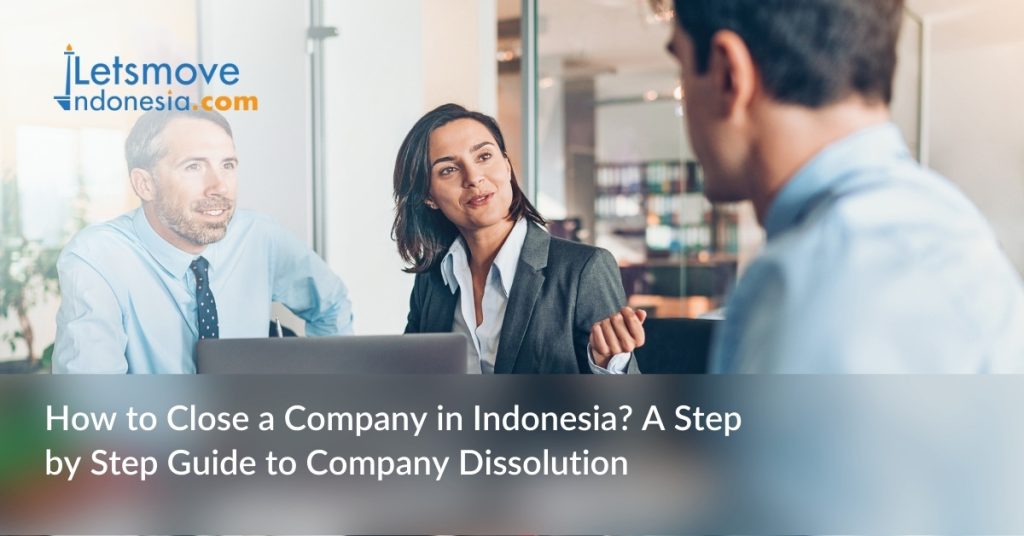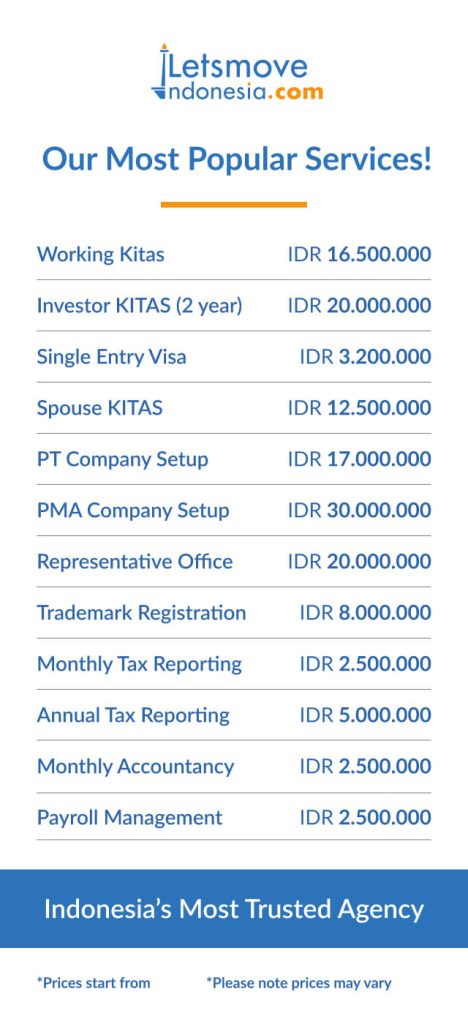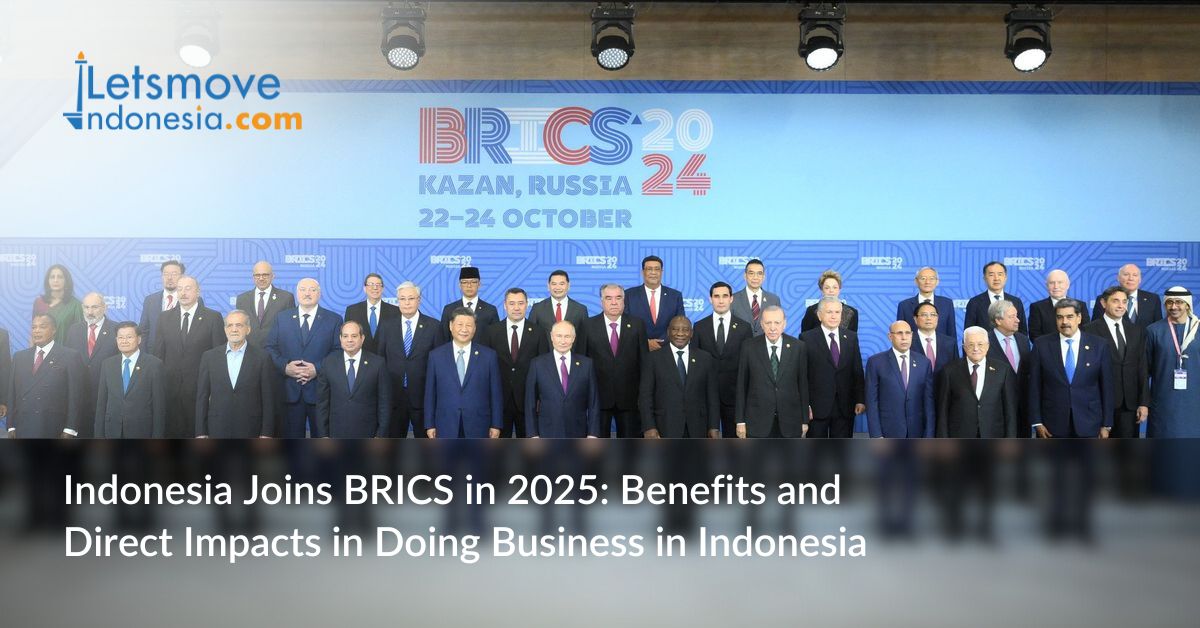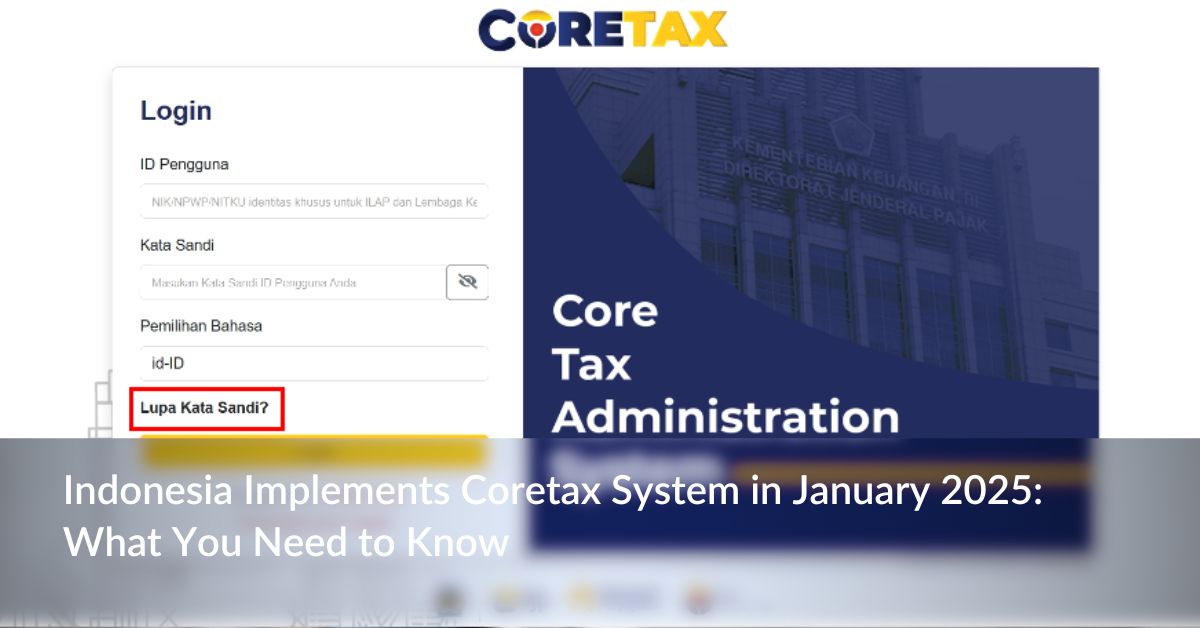Closing a business, while sometimes a difficult decision, is a reality many entrepreneurs face. In Indonesia, the process of company dissolution or liquidation involves navigating legal procedures and fulfilling specific requirements.
Whether it’s due to financial difficulties, a change in business strategy, or any other reason, understanding the process is crucial to ensure a smooth and compliant closure. In this comprehensive guide, we will provide you with a step-by-step overview of company dissolution in Indonesia, answering frequently asked questions and offering insights to facilitate the process.
Why Does A Corporate Close Their Businesses in Indonesia?
Several factors can lead to the decision to shut a business in Indonesia. Some common reasons include:
Financial difficulties: If your company is facing persistent losses or is unable to meet its financial obligations, dissolution may be the most viable option.
- Change in business strategy: A shift in market dynamics or company goals may necessitate closing an existing business to pursue new opportunities.
- Mergers and acquisitions: Companies may be dissolved as part of a merger or acquisition process.
- Retirement or personal reasons: Business owners may choose to close their company due to retirement or other personal circumstances.
As there are several ways to deregister a company in Indonesia, it is important to know what kind of deregistration your company must undergo and what do you need to complete through the dissolution process.
What is Company Dissolution?
Company dissolution refers to the legal termination of a company’s existence. It involves a series of procedures aimed at winding up the business’s affairs, settling its debts, and distributing any remaining assets to shareholders.
What is Company Liquidation?
Company liquidation is the process of converting a company’s assets into cash to settle its debts and liabilities. It is typically carried out by a court-appointed liquidator or an insolvency practitioner.
What is Company Acquisition?
Company acquisition occurs when one company purchases another company, either through a merger or an acquisition of its assets or shares. In some cases, the acquired company may be dissolved as part of the acquisition process.
What Happens When a Company is Dissolved?
When a company is dissolved, it ceases to exist as a legal entity. Its assets are liquidated, debts are settled, and any remaining funds are distributed among shareholders. The company’s name is removed from the business register, and it can no longer engage in any business activities.
Case Study of Company A: Dissolution of The Company in Indonesia
Company A, a foreign-owned PT PMA (Foreign Investment Limited Liability Company) operating in the manufacturing sector in Indonesia, faced a series of financial setbacks due to unforeseen economic challenges. After careful consideration, the board of directors and shareholders decided to initiate the company’s dissolution.
Step 1: Board Resolution and Shareholders’ Meeting
The first step involved the board of directors convening a meeting to pass a resolution for the company’s dissolution. This resolution outlined the reasons for dissolution and proposed the appointment of a liquidator. Subsequently, a shareholders’ meeting was held, where the shareholders voted to approve the dissolution.
Step 2: Appointment of a Liquidator
Appointing a liquidator is essential to bear the responsibilities included:
- Identifying and valuing the company’s assets, including machinery, inventory, and receivables.
- Notifying all known creditors about the company’s dissolution and inviting them to submit their claims within a specified period.
- Negotiating with creditors to settle outstanding debts.
- Preparing a liquidation report detailing the company’s financial position and the proposed distribution of assets.
Step 3: Notification to Creditors
The appointed parti must meticulously identified and notified all of Company A’s creditors, including suppliers, banks, and tax authorities. He provided clear instructions on how to submit their claims and the deadline for doing so.
Step 4: Settlement of Debts
The liquidator uses the proceeds from the sale of Company A’s assets to settle its debts.
Step 5: Distribution of Assets
After settling all outstanding return, the remaining assets were distributed among the shareholders of Company A according to their shareholding percentage. This distribution was outlined in the liquidation report prepared by the liquidator.
Step 6: Deregistration
Finally, the liquidator files the necessary documents with the Ministry of Law and Human Rights to deregister Company A from the business register. A notice of dissolution was also published in the State Gazette, informing the public of the company’s closure.
Outcome:
The dissolution of Company A was successfully completed within a reasonable timeframe. The liquidator ensured that all legal obligations were fulfilled, debts were settled, and assets were distributed fairly among shareholders. While the closure of the company was undoubtedly a challenging experience for all involved, the process was conducted in a transparent and compliant manner, minimizing potential risks and liabilities.
Key Takeaways:
This case study demonstrates the importance of careful planning and adherence to legal procedures when dissolving a company in Indonesia. Engaging a qualified liquidator, such as Mr. Santoso, can significantly streamline the process and ensure a smooth and compliant closure. Additionally, seeking professional advice from legal consultants like Lets Move Indonesia can help businesses navigate the complexities of company dissolution and protect their interests throughout the process.
How to Close a Company Down? Procedures for Closing Down a Legal Business Corporation
Based on the case study above, we can conclude that the process of closing down a company in Indonesia involves several steps:
- Board Resolution and Shareholders’ Meeting: The board of directors must pass a resolution to dissolve the company, followed by a shareholders’ meeting to approve the dissolution.
- Appointment of a Liquidator: A liquidator is appointed to oversee the liquidation process, which involves identifying and valuing the company’s assets, settling debts, and distributing any remaining assets to shareholders.
- Notification to Creditors: The liquidator must notify all known creditors of the company’s dissolution and invite them to submit their claims.
- Settlement of Debts: The liquidator uses the company’s assets to settle its debts, prioritizing secured creditors over unsecured creditors.
- Distribution of Assets: Any remaining assets after settling debts are distributed among shareholders according to their shareholding percentage.
- Deregistration: The company is deregistered from the business register, marking the official termination of its existence.
How to Close a Limited Company in Indonesia?
The process for closing a limited company (PT) in Indonesia generally follows the steps outlined above. However, there are specific requirements that PTs must fulfill, such as obtaining approval from the Ministry of Law and Human Rights and publishing a notice of dissolution in the State Gazette.
How to Close My Company If the Company Has Debt?
If your company has outstanding debts, the liquidation process becomes more complex. The liquidator will prioritize settling the favour using the company’s assets. And if the assets are insufficient to pay, shareholders may be personally liable for the remaining amount, depending on the company’s legal structure and their shareholding agreement. It’s crucial to seek professional legal advice in such situations to ensure a compliant and responsible closure.
How Long Does It Take to Liquidate a Company?
The duration of the company liquidation process in Indonesia can vary depending on several factors, including the complexity of the company’s affairs, the number of creditors, and any legal disputes that may arise. Generally, the process can take anywhere from several months to a year or more.
Navigate the Easiest Process of Company Dissolution in Indonesia with Lets Move Indonesia
Closing down a company in Indonesia involves navigating legal complexities and fulfilling various obligations. To ensure a smooth and compliant process, consider partnering with Lets Move Indonesia’s experienced legal consultants. We can guide you through every step, from preparing the necessary documentation to liaising with relevant authorities, ensuring your company’s closure is handled efficiently and effectively.
Company dissolution in Indonesia is a multi-faceted process that requires careful planning and adherence to legal procedures. Seeking professional guidance can simplify the process and protect your interests.
With Lets Move Indonesia expert consultants, access the dedicated support and expertise you need to navigate this transition successfully. Contact us today to learn more about how we can assist you in closing your company in Indonesia.
Related Articles About Business in Indonesia
What is a Business License? Answering Your Questions About Licenses and Permits in Indonesia
Company Dissolution in Indonesia 2024: A Guide for Foreign Investors
Work Permit (2024): A Comprehensive Guide for Foreign Professionals
What is KITAS in Indonesia? Understanding Indonesian Investor KITAS and Work Visas
Business Etiquette Indonesia: Understand Essential Things About Business Culture in Indonesia











